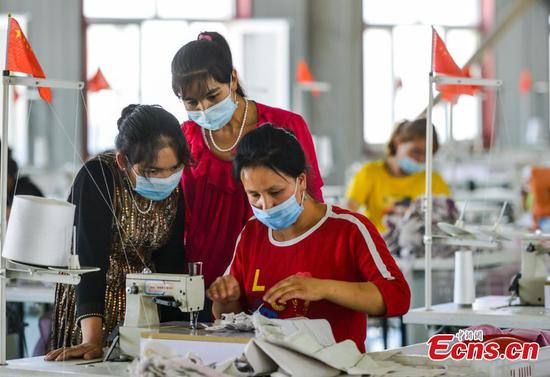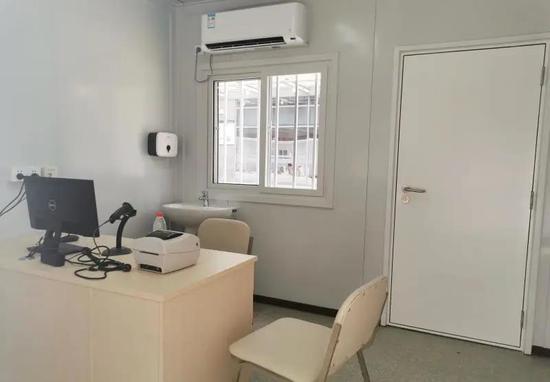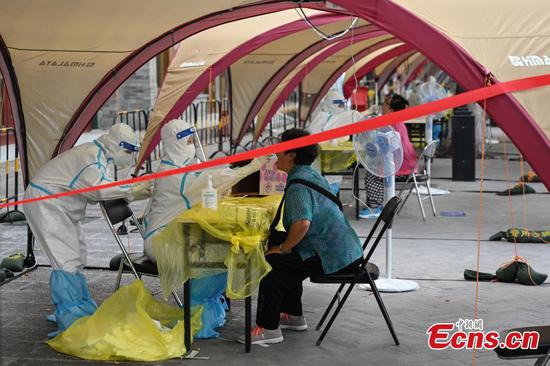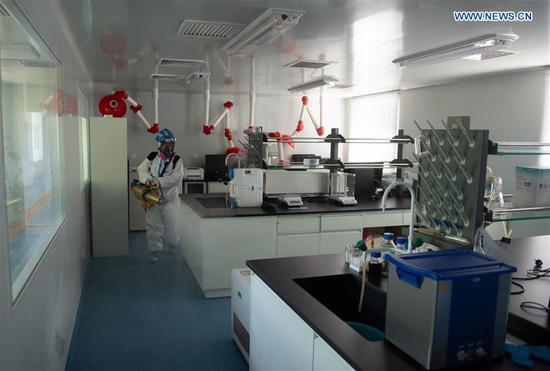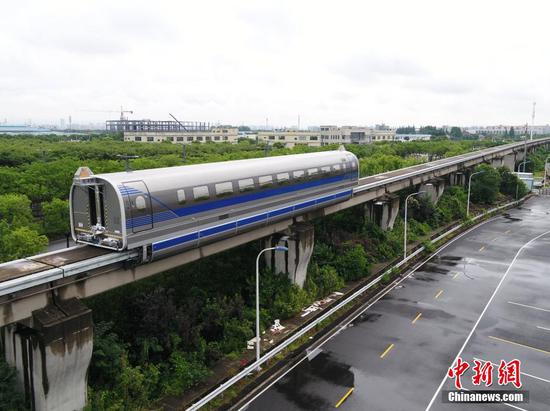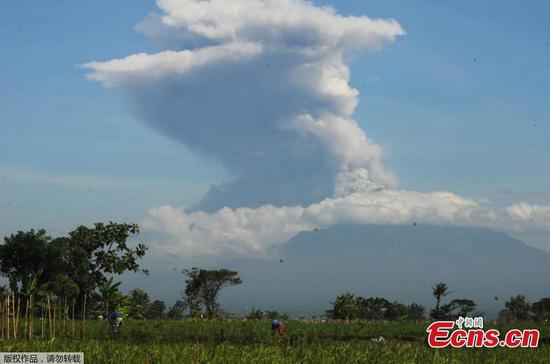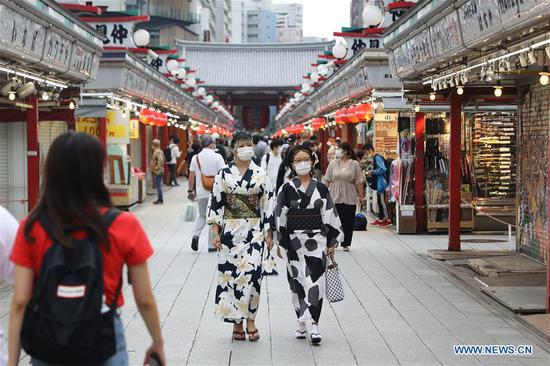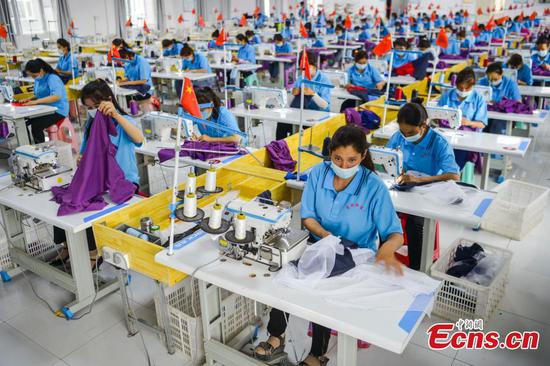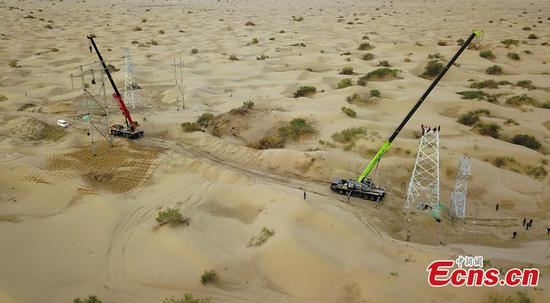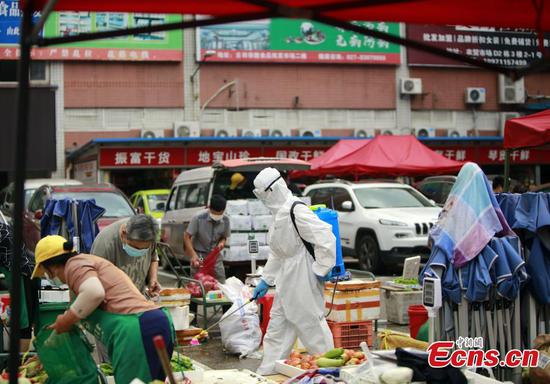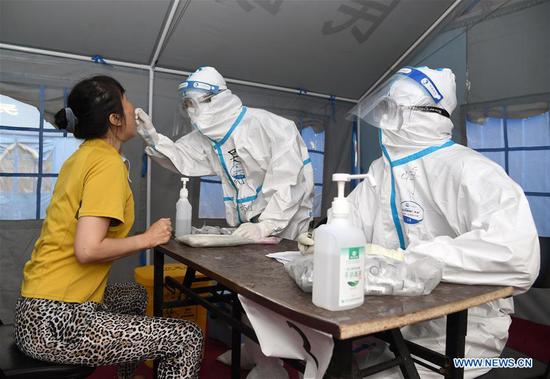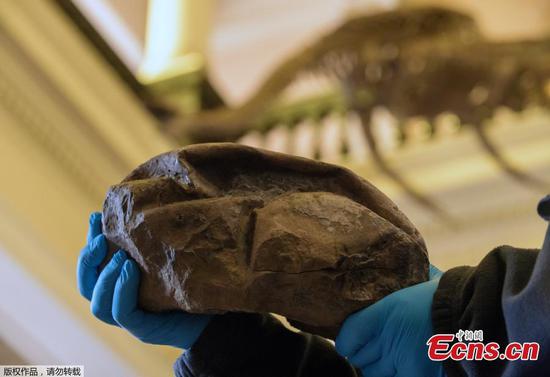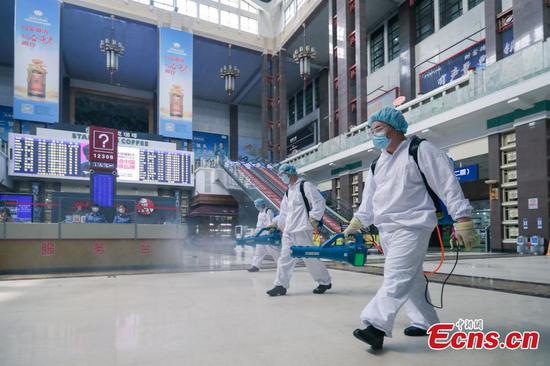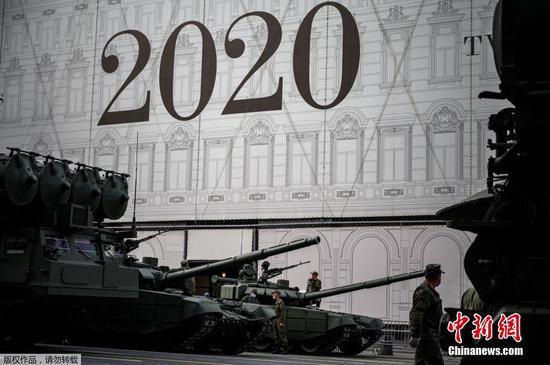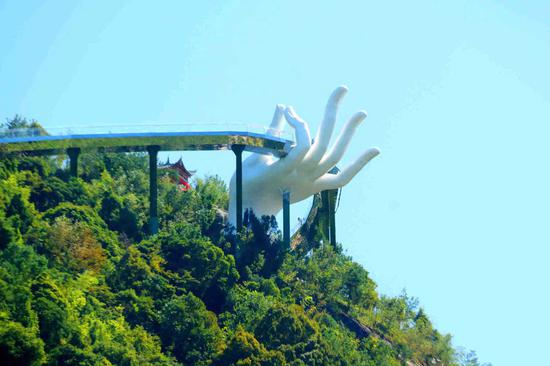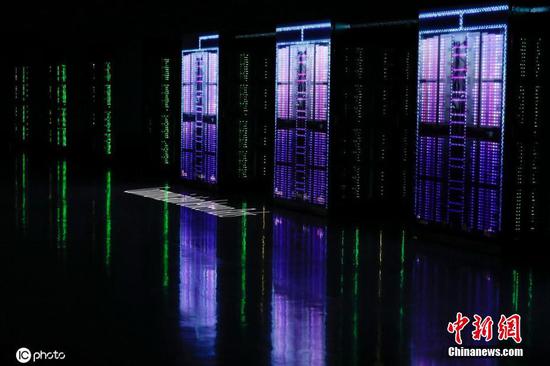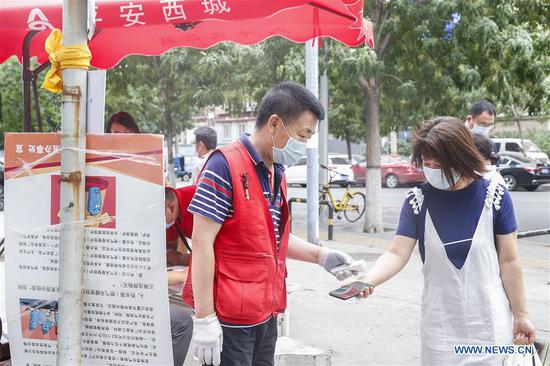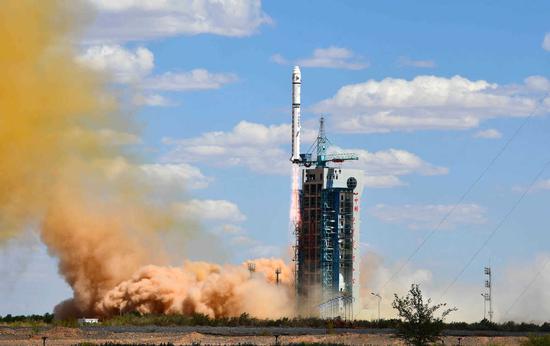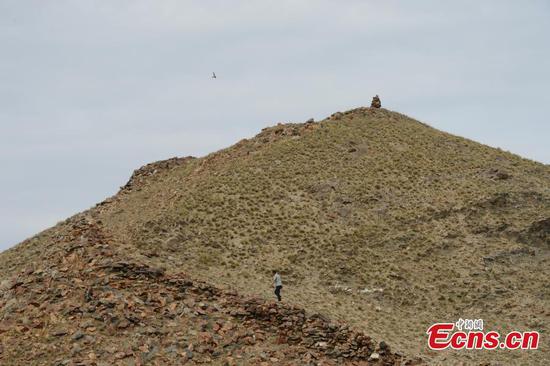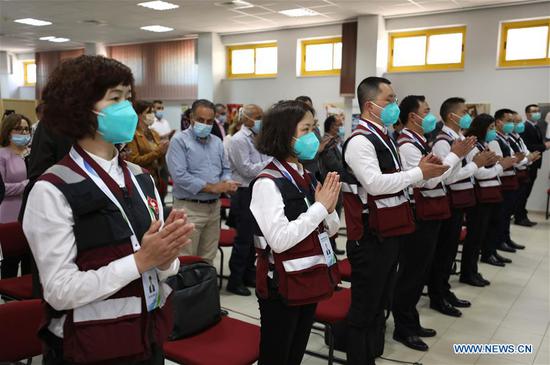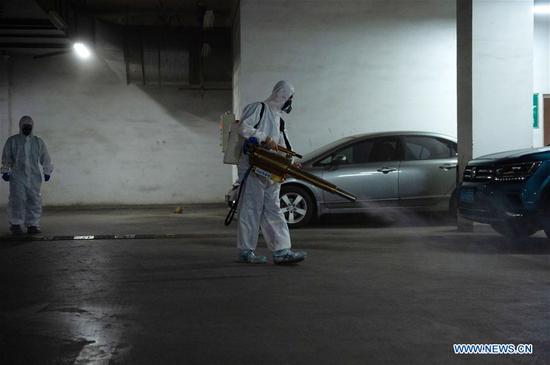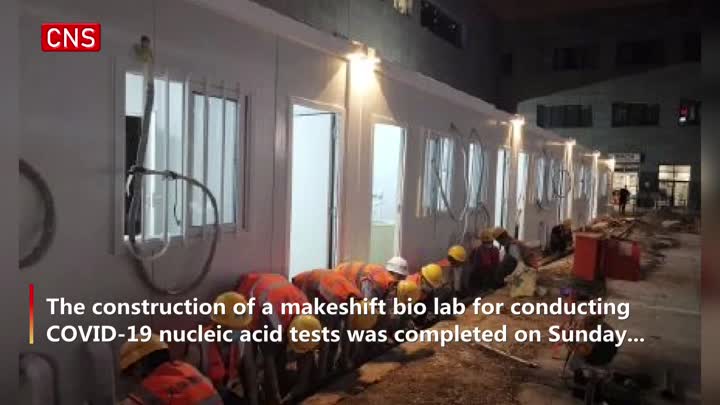![Fruit and vegetables are unloaded from trucks at a temporary trading area in Beijing after the Xinfadi market was closed for disinfection in June, 2020. [Photo by Feng Yongbin/China Daily] Fruit and vegetables are unloaded from trucks at a temporary trading area in Beijing after the Xinfadi market was closed for disinfection in June, 2020. [Photo by Feng Yongbin/China Daily]](http://i2.chinanews.com/simg/hpic/2020/06-22/pic1-34386540.jpeg)
Millions of people have already been screened. Now, the net is widening. Cheng Si reports.
On Saturday, Beijing reported 22 new confirmed cases of COVID-19, bringing the total on the Chinese mainland to 83,378, according to a news release by the National Health Commission.
It was the 10th consecutive day that new cases had been reported in the capital. In the previous 10 days, 227 confirmed cases had been reported, all of which were closely connected with the Xinfadi market in the city's southwestern Fengtai district.
In addition, newly confirmed cases in Liaoning, Sichuan and Hebei provinces and Tianjin-reported from June 11 to 20-all had connections with the market.
The resurgence of the novel coronavirus in the capital has triggered public concern about the activities and standards at Xinfadi, which is located on the site of a former village in Fengtai between the (South) Fourth Ring Road and the Fifth Ring Road.
![Customers sort fruit at the temporary trading facility in June, 2020. [Photo by Feng Yongbin/China Daily] Customers sort fruit at the temporary trading facility in June, 2020. [Photo by Feng Yongbin/China Daily]](http://i2.chinanews.com/simg/hpic/2020/06-22/pic2-34386540.jpeg)
Resurgence
On June 11, Beijing reported its first new confirmed case of COVID-19 in 56 days.
Pang Xinghuo, deputy director of the Beijing Center for Disease Control and Prevention, told a June 12 news conference that the patient-who had no recent history of contact with people outside of the city-had visited the Xinfadi market to buy seafood and meat.
The subsequent confirmed cases were all proved to be connected with the market. As a result, the city authorities suspended operations at Xinfadi at 3 am on June 13 and disinfected the market.
The market's 8,000-plus workers, administrators and regular customers were all tested for the coronavirus on June 14 and then placed under medical observation.
In addition, 36 communities in the capital have been placed under stricter management. Samples have been taken from 2.3 million Beijing residents and they are being tested for the coronavirus.
On June 15, Xu Hejian, a spokesman for the Beijing government, told a news conference that the movement of people in Xinfadi and neighboring areas would be strictly managed and authorities were working to trace and control the source of the new outbreak.
The government has identified nearly 200,000 people who have visited the Xinfadi market since May 30.
Provinces outside of Beijing are also strengthening supervision of produce markets to prevent a resurgence of the epidemic.
On June 13, Wuhan, capital of Hubei province, took 1,590 samples from a number of supermarkets and wholesale produce markets in the city. They all tested negative for the coronavirus.
The city continued testing on June 14, paying particular attention to seafood products.
Also starting on June 14, Zhengzhou, the capital of Henan province, organized coronavirus tests for the city's 204 produce markets, 138 supermarkets and 6,782 importers of seafood and meat.
All the venues tested negative for the virus.
![A truck loaded with fruit and vegetables arrives at the makeshift trading area in June, 2020. [Photo/Xinhua] A truck loaded with fruit and vegetables arrives at the makeshift trading area in June, 2020. [Photo/Xinhua]](http://i2.chinanews.com/simg/hpic/2020/06-22/pic3-34386540.jpeg)
Produce hub
Xinfadi, originally named Xinfendi, was once home to those who guarded the nearby tombs of local residents, according to a history of Fengtai district that was published in 1993.
In the 1950s, the district was one of the capital's most important hubs for fruit and vegetables, especially as unofficial markets in Yuegezhuang and Xinfadi were easily accessible to the general populace.
The origins of the Xinfadi market lie in these unofficial facilities, which were boosted when the Beijing government relaxed price controls on a range of produce, including meat, eggs and vegetables.
It also introduced vegetables grown outside of the city for the first time.
On May 16, 1988, the Xinfadi market was established with an initial funding of 150,000 yuan. Covering an area of 10,000 square meters, its activities were overseen by 15 administrative staff members.
The facility grew quickly as a large number of retailers were lured by low management fees and streamlined procedures for registering stalls.
In 1991, the market charged rent of 1 yuan per stall. That year, the market earned 1.1 million yuan-a huge sum at a time when very few families could boast monthly income of 10,000 yuan.
Xinfadi is now Beijing's largest supplier of agricultural and seafood products, and also the largest in Asia in terms of annual transactions.
Now covering an area of 1.12 square kilometers-roughly equal to 157 soccer fields-it supplies 80 percent of the capital's agricultural and aquatic produce.
The market can appear as confusing as a maze to those unfamiliar with its layout, as goods such as vegetables, fungi, seafood and imported fruit are sold in different designated sectors.
Insiders say it is practically impossible to walk through the entire market in a single day.
Elderly Beijing residents have developed the habit of heading to Xinfadi in the early morning to buy produce.
While there are few morning markets operating in Beijing's urban areas, things are different at Xinfadi, which is a hive of activity long before sunrise, as suppliers and stallholders prepare for the day ahead.
In the early morning, heavy traffic is usually a feature of the roads around the Xinfadi market.
The streets become clogged with vehicles carrying regular customers from chain supermarkets, along with many buses transporting large numbers of seniors who sometimes travel for an hour or more to buy fresh produce.











